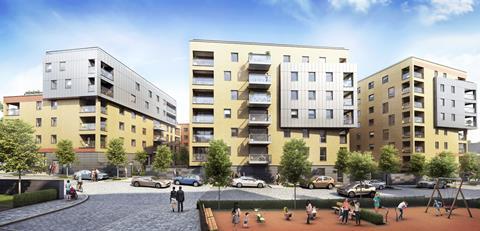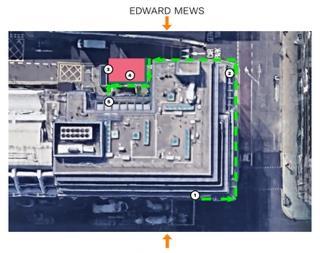The trend of private rented sector (PRS) developers buying stock from housebuilders continued last week with Fizzy Living snapping up a block of 111 flats within Taylor Wimpey’s upcoming 500-unit development on Blackhorse Lane in Walthamstow.

It was the company’s first deal with Taylor Wimpey and is unlikely to be the last.
Fizzy’s managing director Harry Downes says that he’s open to deals with housebuilders becoming a “very big part” of the business - bigger, potentially, than the stock it brings forward off of its own back.
“If the flats are the right size and they’ve got the amenity space we need, why wouldn’t we?” he tells Property Week. “It’s the ideal opportunity.”
But what makes these types of deals so attractive for both sides? And why are Taylor Wimpey, Fizzy and others now more interested in them than ever?
More realistic option
Until recently, housebuilders were put off selling to PRS investors and developers because they tended to receive a lower price than they would from other buyers. However, they are now seeing them as a more realistic option as a result of the slowdown in the residential market, particularly in central London.
The stock Taylor Wimpey sold to Fizzy were units it would have otherwise had to sell off to investors, but as Downes notes: “If the market goes sideways, it’s easy for investors to drop the deposit.”
If you can find an off-the-peg suit that fits you as well as a bespoke one, you’d buy it.
Bulk deals also generate a big chunk of upfront capital that housebuilders can invest in the next phase of the same scheme or other projects. “You have no marketing costs at all; you have no void costs; it’s all gone, and gone to someone who isn’t going to compete with you.”
Meanwhile, for the likes of Fizzy, buying from a housebuilder is a way of avoiding the significant costs and risks associated with getting large-scale PRS schemes through the planning system.

Downes won’t reveal the price Fizzy paid for the Taylor Wimpey flats, but he says he is willing to spend around £500/sq ft to £650/sq ft, which will allow him to charge affordable rental prices at a good yield.
“If you can find an off-the-peg suit that fits you as well as a bespoke one, you’d buy it, for quarter of the price,” he adds.
That’s not to say Fizzy or any other PRS developer will just snap up anything they’re offered. “Just because it’s cheap, doesn’t mean it’s a good deal”, Downes explains. “If it’s a dodgy location down the back of the gas works, we might be able to let it for half price but none of your tenants will get home with their briefcase.”
He adds that Fizzy will only buy in places that it would look to build in itself and in developments where it can put in the amenities it needs, including commercial space for Fizzy’s property managers.
And it can afford to take its time finding the right sites: Downes believes that even when London’s residential market picks up again, housebuilders will continue to sell stock to PRS developers.
Big part of the business
“When housebuilders properly see the benefit and understand what we’re doing, we think those deals will become a very big part of our business,” he says. “As long as the seller understands the value to him and the cost to us of the development risk, the void risk and the fact that we’re forward funding, the deal works.”
So the key question is: where will Fizzy’s next deal with a housebuilder come from? “We speak to everybody all the time,” he says. “[Fizzy and Taylor Wimpey] understand each other. They like our brand and they like what we do. I can’t see any reason why we wouldn’t be top of each other’s lists for next time out.” Watch this space.






























No comments yet